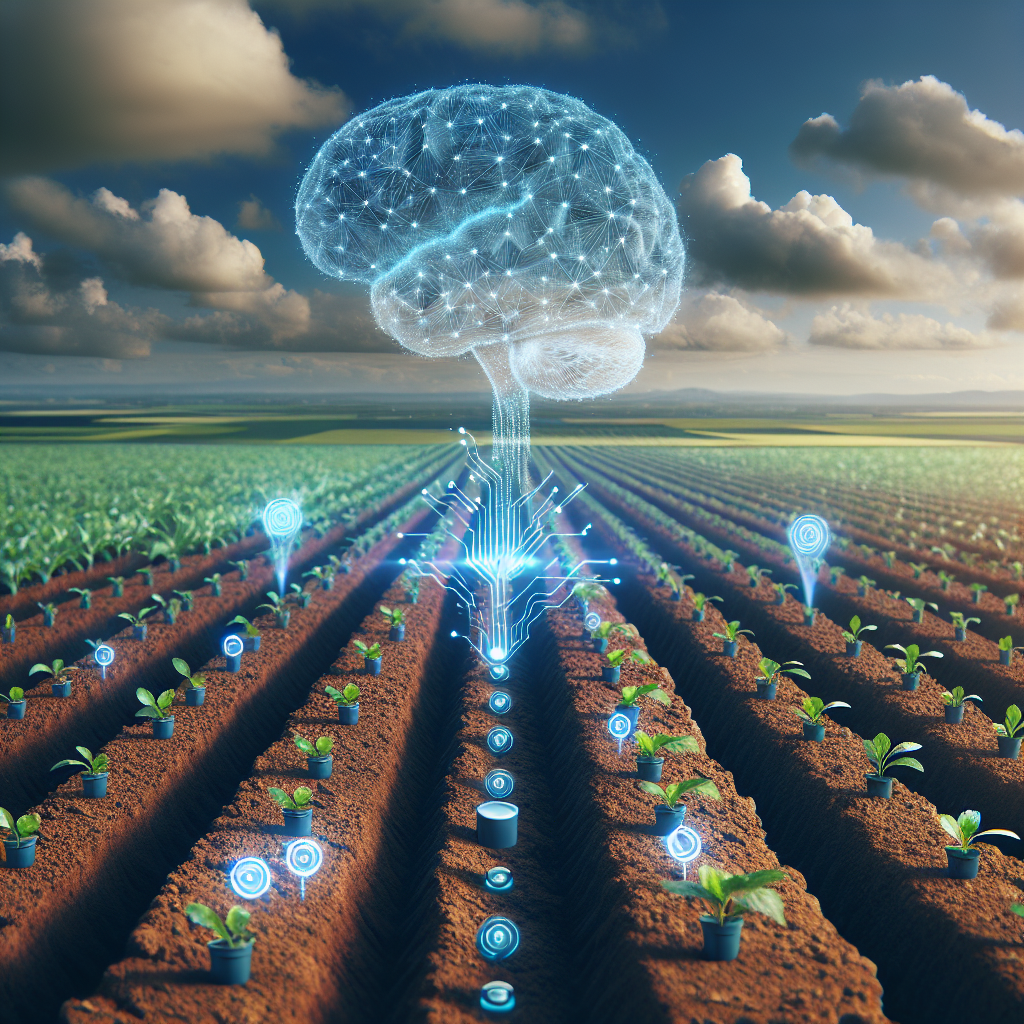Soil health is a critical component of agriculture, as it directly impacts crop yield, quality, and overall sustainability of farming practices. With the advancement of technology, artificial intelligence (AI) is now being used to revolutionize soil health management. In this article, we will explore various AI applications in soil health management and how they are transforming the way farmers approach soil management.
AI in Soil Health Analysis
One of the key applications of AI in soil health management is in soil analysis. Traditionally, soil testing involved sending samples to a lab for analysis, which could be time-consuming and costly. AI technology now allows for on-the-spot soil analysis using handheld devices or drones equipped with sensors. These devices can provide real-time data on soil pH, nutrient levels, moisture content, and other important parameters, allowing farmers to make informed decisions about fertilizer application and irrigation practices.
AI algorithms can also analyze large amounts of soil data collected from various sources, such as satellite imagery, weather data, and historical soil test results. By combining these datasets, AI can generate predictive models that can help farmers optimize their soil management practices. For example, AI can predict crop yield based on soil health parameters and recommend the optimal amount and timing of fertilizer application to maximize yield and minimize environmental impact.
AI in Precision Agriculture
Precision agriculture is a farming approach that utilizes technology to optimize inputs such as water, fertilizer, and pesticides, while minimizing waste and environmental impact. AI plays a crucial role in precision agriculture by providing real-time insights into soil health and crop conditions. For example, AI-powered sensors can monitor soil moisture levels and nutrient content, allowing farmers to adjust irrigation and fertilization practices accordingly.
AI can also be used to create prescription maps that guide farmers on where and how much fertilizer or pesticide to apply based on soil health data. This targeted approach not only improves crop yield but also reduces input costs and minimizes environmental pollution.
AI in Crop Monitoring
Another important application of AI in soil health management is in crop monitoring. AI-powered drones and satellites can capture high-resolution imagery of fields, allowing farmers to assess crop health, detect pests and diseases, and monitor crop growth over time. By analyzing this imagery with AI algorithms, farmers can identify areas of the field that require attention, such as nutrient deficiencies or pest infestations, and take corrective action before crop yield is affected.
AI can also help farmers track crop performance throughout the growing season and predict harvest yields. By integrating soil health data with crop monitoring data, AI can provide valuable insights into the relationship between soil health and crop productivity, allowing farmers to make data-driven decisions to improve overall farm efficiency.
FAQs
Q: How accurate are AI-powered soil analysis devices compared to traditional lab testing?
A: AI-powered soil analysis devices are generally as accurate as traditional lab testing, if not more so. These devices use advanced sensors and algorithms to provide real-time data on soil health parameters, allowing farmers to make timely and informed decisions about soil management practices.
Q: Can AI predict crop yield based on soil health parameters?
A: Yes, AI can generate predictive models that can estimate crop yield based on soil health parameters, weather data, and other relevant factors. By analyzing historical data and current soil conditions, AI can provide farmers with valuable insights into expected harvest yields and help them optimize their farming practices.
Q: How can farmers benefit from using AI in soil health management?
A: Farmers can benefit from using AI in soil health management in several ways, including improved crop yield, reduced input costs, and enhanced environmental sustainability. By leveraging AI technology to analyze soil data, monitor crop health, and optimize farming practices, farmers can increase productivity, profitability, and resilience to climate change.
In conclusion, AI applications in soil health management are revolutionizing the way farmers approach soil management, leading to more sustainable and efficient farming practices. By leveraging AI technology to analyze soil data, monitor crop health, and optimize inputs, farmers can improve crop yield, reduce input costs, and minimize environmental impact. As AI continues to advance, the future of soil health management looks promising, with new opportunities for innovation and growth in agriculture.

